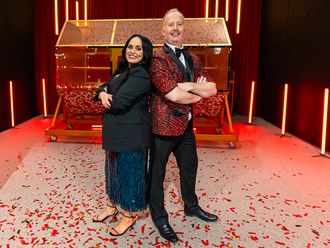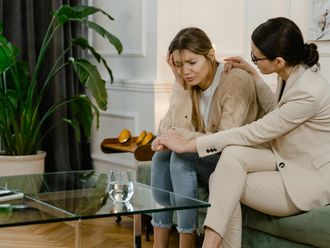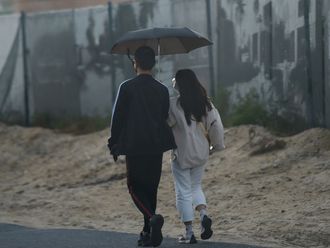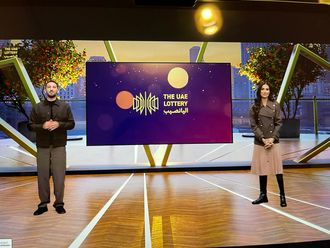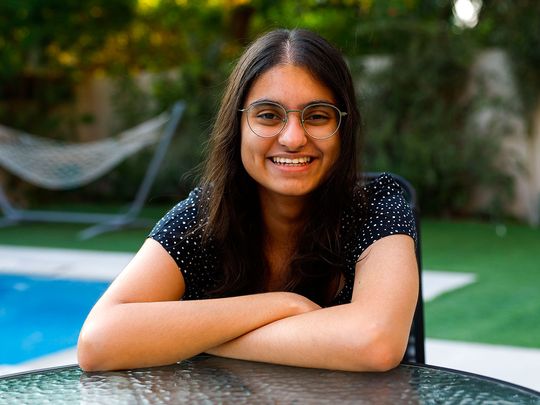
Dubai: In a unique community initiative, a Dubai-based student has undertaken to collect, preserve and provide open access to oral histories of past generations in the hope that they would not be lost forever.
The effort, part of a project called the Itihas Oral Histories Archive, has won 17-year-old Indian expat Aarushi Dahiya international acclaim. Having received recognition from Rise, an initiative of the Schmidt Futures & Rhodes Trust which seeks to identify and support young people who can make a difference, Dahiya is one among 100 global winners, picked from 14,000 applicants in 170 countries. Aarushi Dahiya, 17, has created an archive of oral histories that gives a rare insight into past ways of life that may have been lost forever.
Speaking to Gulf News, Dahiya said she focused on oral histories of the elderly from her community in their own voices for a reason. “I built a website that enables the elderly to record their stories in their own voices, then categorised these stories into a searchable archive that anyone can listen to and learn from. The website catalogues over 100 recordings to date with more coming still, discussing topics ranging from rural life to the position of women in society.”
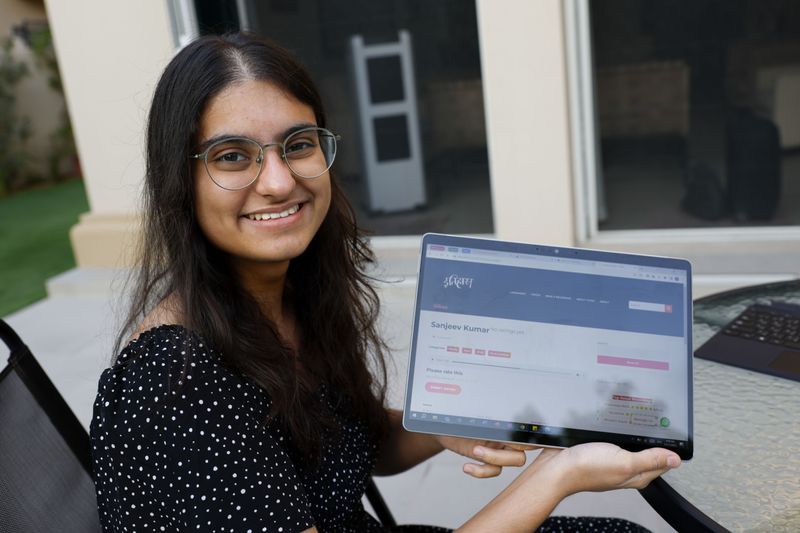
She said, “These accounts, though rich with detail, are not simple statements of fact; they brim with emotion, offering true, human insight into ways of life that were lost decades ago. In listening to them, I have learnt so much about my own identity - and I’m not alone in that.”
As an Indian who has never lived in native India, Dahiya said she had grown up in a starkly different cultural context to her family. “And as my grandparents’ generation ages, we irrevocably lose countless human experiences. Our songs and memories quietly disappear as nobody fights to save them,” she reasoned.
Dahiya said her main interest was in those mundane stories of the everyday that fade out of the historical narrative. “Things like what a day in my grandparents’ childhood was like, or how festivals were celebrated. We don’t generally think about history as individual people’s stories, but that’s exactly what it is. I couldn’t find a systematised record of these experiences anywhere, so I started a community effort to create one. My intention was to learn more about myself and extend that opportunity to others, create a record of a history that isn’t well-documented and rediscover the joy in listening to an elder tell their story in their own voice.”
That the historical record is only in the audio form is no coincidence. “For my project, I created an online system designed to be accessible for the elderly, collecting and archiving voice recordings based on several prompts. I organised these responses into a publicly accessible and searchable database, building a website at itihas.link,” she explained.
Accessible design was also very important to her. “During the pandemic, I spent hours on calls with my grandparents to help them set up apps that they needed during lockdown. We really struggled because these apps used abstract symbols that were difficult for them to navigate. I tried to be conscious about accessible design in my own project, interviewing my elderly users for their feedback. This informed several redesigns until I came up with something that served my community well. Over the short time span of the project, I received over 100 contributions, with more on the way,” she added.
The narratives in the archives are rich and diverse, throwing light as they do on different communities, historical events, folk tales heard as children, stories of village square entertainment and so on. The recordings are rife with anecdotes like someone swimming with buffaloes in a village pond or someone else taking off their gold earrings to donate to victims of war.
“Itihas has had an impact beyond anything I’d initially imagined,” she claimed. She has received messages, recordings, even a handwritten note from an 84-year-old lady expressing gratitude for these stories. “People listened to the memories of complete strangers, and in them found knowledge, comfort and reflections of their own experiences. In this sense, Itihas has brought my community closer together. Apart from the public recordings, I’ve been told that it encouraged families to discuss their personal histories with elderly relatives, discovering new truths about themselves,” she added.
She said she sought not only to preserve historical information, but also linguistic diversity and folk music. The recordings on the website are in a number of languages and Indian dialects, forming an invaluable record of local speech.
“Several recordings are of traditional songs, none of which I’d ever heard before,” she added.




